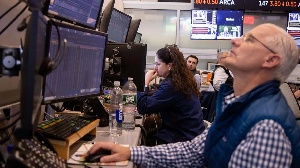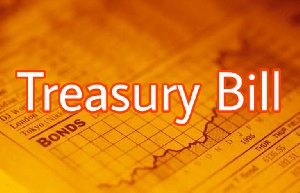- Home - Entertainment
- Lifestyle News
- Year In Review
- Music News
- Entertainers
- Entertainment Archive
- Entertainment Photos
- Jokes
- Entertainment Headlines
- Ameyaw Debrah
- Brown GH
- Celebrities Buzz
- GH Base
- Ghana Celebrities
- Gh Gossip
- GH Page
- GH Splash
- Hot Gossip GH
- YEN
Television of Thursday, 10 April 2025
Source: www.ghanawebbers.com
US stocks make historic gains after Trump pauses some tariffs
US shares surged after President Donald Trump announced a new tariff plan. He will suspend steep tariffs on most countries and impose a 10% import tax instead.
The White House stated it would ease higher levies for trade partners willing to negotiate. However, Trump plans to raise tariffs on Chinese goods to at least 125% immediately.
The S&P 500 jumped 9.5%, marking its biggest one-day rally since 2008. This followed days of turmoil caused by the initial tariffs.
Trump's decision came less than a day after new tariffs took effect. These affected key trade partners like Vietnam, facing a 46% levy on imports.
The duties were more extensive than Wall Street had expected. Following the announcement, the S&P fell over 10%. Analysts warned of rising recession risks in the US and globally.
By Wednesday, fears spread to the bond market as investors sold US government debt. Paul Ashworth from Capital Economics noted that Trump's resistance weakened once bonds began to decline.
He expects Trump to return to his proposed universal 10% tariff from last year's campaign. However, he cautioned that reaching an agreement with China would take time.
"It’s hard to see either side backing down soon," Ashworth said. "But we believe talks will eventually occur."
The Dow rose over 7.8%, while the Nasdaq increased more than 12%. Companies like Nike and Apple saw significant gains, jumping 11% and roughly 15%, respectively.
Despite these gains, major US indexes remain lower than before Trump's announcement. The S&P is down about 3% and over 8% for the year.
Tariffs on Chinese goods continue to pose economic challenges. Last year, China exported over $400 billion in goods to the US, supplying around 60% of footwear imports and about 36% of clothing imports in January.
Before Trump's announcement, the National Retail Federation warned of a potential drop in shipments handled by US ports this May by about 20%.
After his decision on Wednesday, Trump expressed hope for a deal with China. He also mentioned considering exemptions for individual companies regarding tariffs.
"I saw people getting queasy," he acknowledged but remains committed to duties on strategic sectors like cars and steel. He is also looking at industries such as pharmaceuticals and lumber.
His change in stance followed political pressure from influential supporters like Elon Musk and Bill Ackman. Many were surprised by this abrupt shift in policy.
Shortly after Trump's social media post, Goldman Sachs predicted a recession due to high tariffs. Two hours later, they revised their forecast but still anticipated minimal growth this year with a recession probability of 45%.
Mr. Ackman praised Trump on social media: "Thank you on behalf of all Americans," he said.











